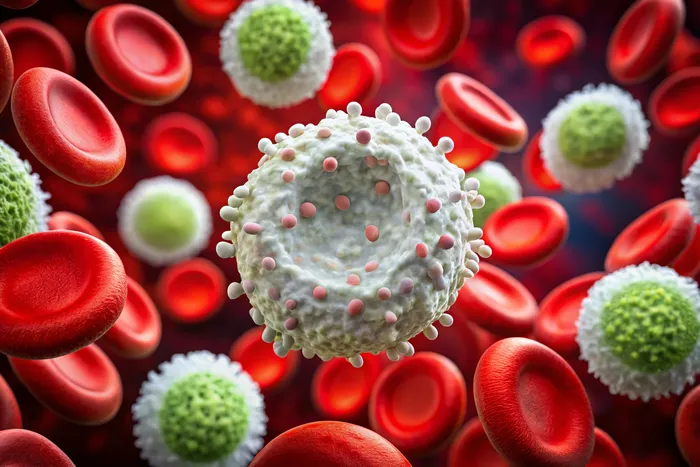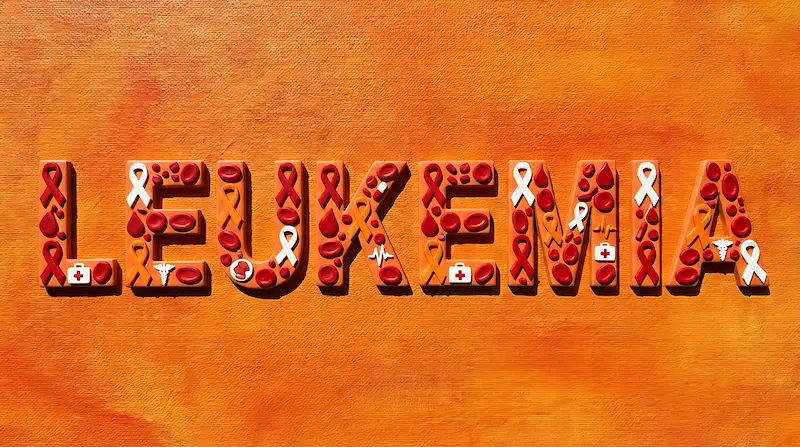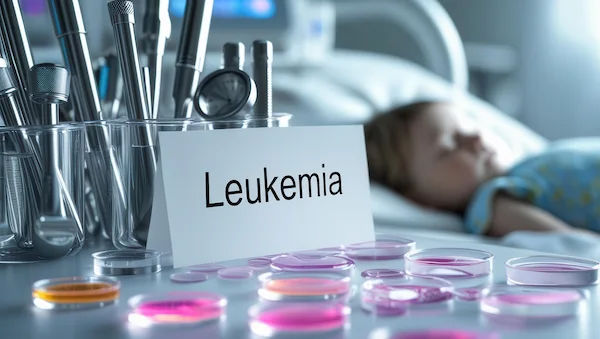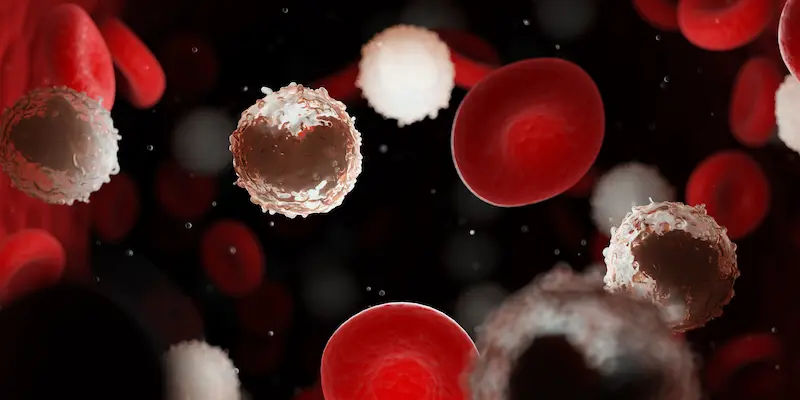Lymphocytosis Causes, Symptoms, and Treatment
Know about lymphocytosis, causes, symptoms, diagnosis and treatemnt options. Learn about the lifestyle an homecare tips.

Written by Dr. Md Yusuf Shareef
Reviewed by Dr. Shaik Abdul Kalam MD (Physician)
Last updated on 13th Jan, 2026

Introduction
Lymphocytosis is a condition characterised by an elevated number of lymphocytes, a type of white blood cell that plays a crucial role in fighting infections. While it’s often a sign that your immune system is working properly, sometimes it can indicate an underlying health issue.
In this article, we’ll break down what lymphocytosis is, its possible causes, symptoms, and treatment options in simple terms so you can understand and manage it better.
What Are Lymphocytes?
Lymphocytes are a key part of your immune system. They help your body fight infections and diseases. There are three main types:
1. B cells – Produce antibodies to fight bacteria and viruses.
2. T cells – Destroy infected or cancerous cells.
3. Natural Killer (NK) cells – Attack harmful cells directly.
A normal lymphocyte count ranges between 1,000 to 4,800 cells per microliter of blood. If your count is higher than this, you may have lymphocytosis.
Consult a General Practitioner for Personalised Advice
Causes of Lymphocytosis
Lymphocytosis can be reactive (temporary, due to an infection) or chronic (long-term, linked to a medical condition).
Common Causes:
The common causes of lymphocytosis includes:
1. Infections – Viral infections like mononucleosis (Epstein-Barr virus), hepatitis, or COVID-19 can increase lymphocytes.
2. Bacterial Infections – Some bacterial infections, like tuberculosis (TB) or whooping cough, may cause it.
3. Chronic Inflammation – Conditions like rheumatoid arthritis or inflammatory bowel disease (IBD) can lead to higher lymphocyte counts.
4. Stress or Physical Trauma – Severe stress, surgery, or injury may temporarily raise lymphocyte levels.
5. Medications – Certain drugs, like steroids or anti-seizure medications, can affect lymphocyte counts.
Serious Causes (Less Common):
1. Leukaemia or Lymphoma – Blood cancers can cause abnormal lymphocyte production.
2. Autoimmune Disorders – Diseases like lupus or HIV may lead to persistent lymphocytosis.
If your doctor detects high lymphocytes, they may recommend further tests to rule out serious conditions.
Symptoms of Lymphocytosis
Most people with mild lymphocytosis don’t experience symptoms—it’s often detected in routine blood tests.
However, if an underlying condition is present, you may notice:
• Fatigue or weakness
• Fever or night sweats
• Swollen lymph nodes (neck, armpits, groin)Unexplained weight loss
• Frequent infections
If you have these symptoms along with a high lymphocyte count, consult a doctor for further evaluation.
Diagnosis and Tests
If your blood test shows lymphocytosis, your doctor may recommend:
1. Complete Blood Count (CBC) – Checks overall white blood cell levels.
2. Peripheral Blood Smear – Examines blood cells under a microscope.
3. Flow Cytometry – Identifies specific types of lymphocytes.
4. Bone Marrow Biopsy (if needed) – Checks for blood disorders like leukemia.
5. Infection Tests – For viruses like HIV, hepatitis, or Epstein-Barr.
Get Your Health Assessed
When to See a Doctor?
• If lymphocytosis persists without an obvious cause (like infection).
• If you have symptoms like fatigue, weight loss, or swollen glands.
Treatment Options
Treatment depends on the underlying cause:
1. For Infections – Most viral infections resolve on their own. Rest, fluids, and over-the-counter medications help.
2. For Bacterial Infections, Antibiotics may be prescribed.
3. For Chronic Conditions (e.g., autoimmune diseases) – Immunosuppressants or anti-inflammatory drugs may be needed.
4. For Blood Cancers (like leukemia or lymphoma) – Chemotherapy, radiation, or targeted therapy may be required.
Lifestyle and Home Care Tips
The lifestyle and home care tips include:
• Eat a balanced diet (rich in fruits, vegetables, and lean proteins).
• Stay hydrated to support immune function.
• Exercise moderately to boost immunity.
• Manage stress through yoga, meditation, or deep breathing.
• Avoid smoking and excessive alcohol, as they weaken immunity.
When to Seek Emergency Care?
Most cases of lymphocytosis are harmless, but seek immediate medical help if you experience:
• Severe fatigue or dizziness
• High fever with confusion
• Uncontrolled bleeding or bruising
• Sudden, severe weight loss
These could indicate a serious underlying condition.
Final Thoughts
Lymphocytosis is often a temporary response to infections or stress. However, if it persists, further tests may be needed to rule out serious conditions. The good news is that most cases are manageable with proper diagnosis and care.
Consult a General Practitioner for Personalised Advice
Consult a General Practitioner for Personalised Advice

Dr. Mainak Baksi
General Practitioner
13 Years • MBBS , MD (MPH)
Howrah
Mainak Baksi Clinic, Howrah
(50+ Patients)

Dr. Praveen Kumar Mukka
General Physician/ Internal Medicine Specialist
21 Years • MBBS, MD General Medicine
Hyderabad
Apollo 24|7 Clinic - Telangana, Hyderabad
(100+ Patients)

Dr. Rajib Ghose
General Physician/ Internal Medicine Specialist
25 Years • MBBS
East Midnapore
VIVEKANANDA SEBA SADAN, East Midnapore

Dr Summaiya Banu
General Practitioner
8 Years • MBBS
Hyderabad
Apollo 24|7 Clinic, Hyderabad
(250+ Patients)

Dr. D Bhanu Prakash
General Practitioner
10 Years • MBBS, AFIH, Advanced certificate in critical care medicine, Fellowship in critical care medicine
Hyderabad
Apollo 24|7 Clinic, Hyderabad
Consult a General Practitioner for Personalised Advice

Dr. Mainak Baksi
General Practitioner
13 Years • MBBS , MD (MPH)
Howrah
Mainak Baksi Clinic, Howrah
(50+ Patients)

Dr. Praveen Kumar Mukka
General Physician/ Internal Medicine Specialist
21 Years • MBBS, MD General Medicine
Hyderabad
Apollo 24|7 Clinic - Telangana, Hyderabad
(100+ Patients)

Dr. Rajib Ghose
General Physician/ Internal Medicine Specialist
25 Years • MBBS
East Midnapore
VIVEKANANDA SEBA SADAN, East Midnapore

Dr Summaiya Banu
General Practitioner
8 Years • MBBS
Hyderabad
Apollo 24|7 Clinic, Hyderabad
(250+ Patients)

Dr. D Bhanu Prakash
General Practitioner
10 Years • MBBS, AFIH, Advanced certificate in critical care medicine, Fellowship in critical care medicine
Hyderabad
Apollo 24|7 Clinic, Hyderabad

.webp)


.webp)
